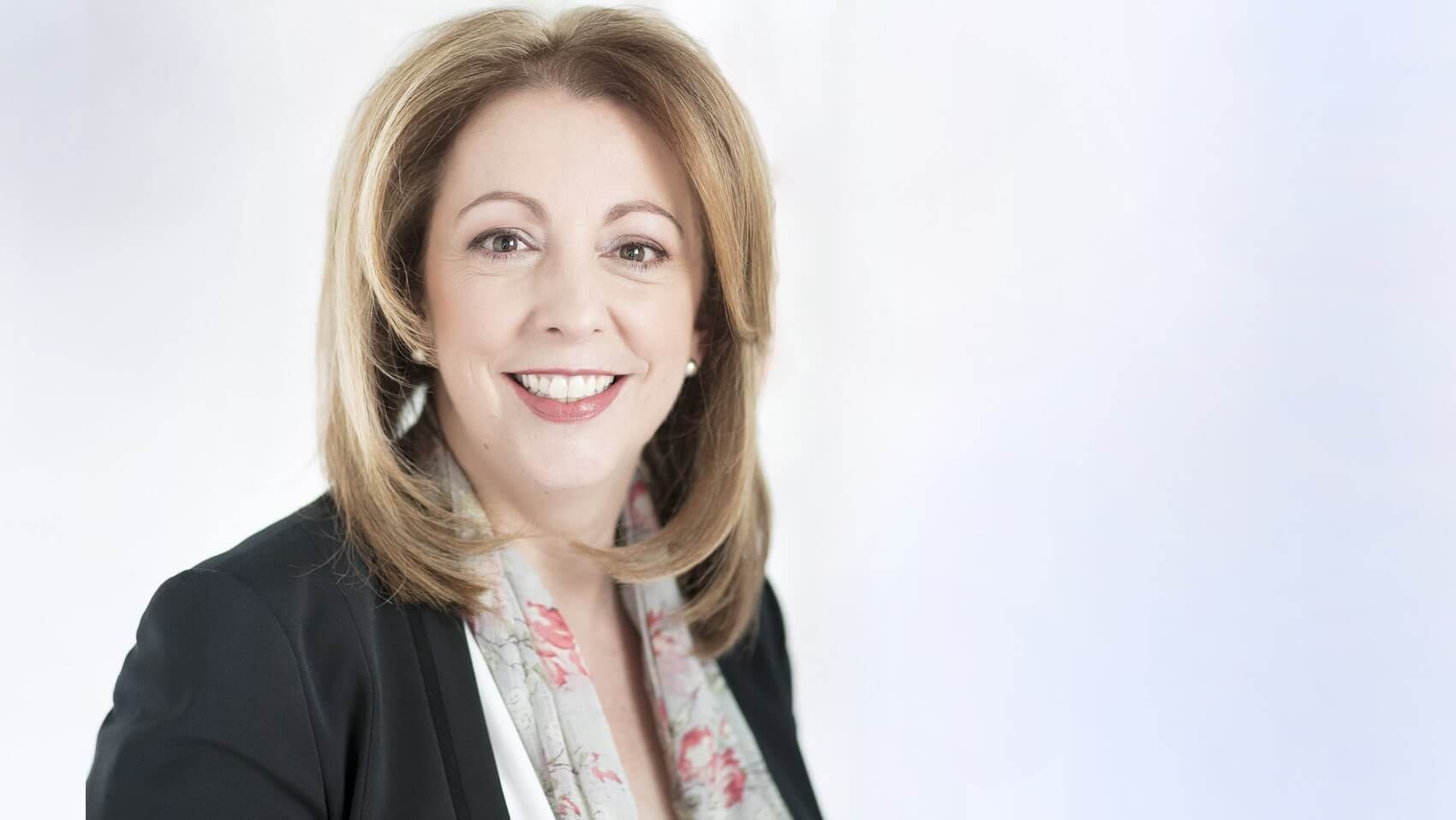Meet Rebecca Lee. Transformational leadership is a long-standing subject of academic debate and is classic curriculum fodder for the world’s leading business schools.
While definitions abound, the ability to lead through change is becoming more of an expectation than a theory amongst corporate executives. And yet, we continue to ask ourselves, “what is transformational leadership“?
In a world where the only constant is change, Rebecca has one of the best answers to this question.
A scientist and a keen observer of life, Rebecca has discovered that transformational leadership is, first and foremost, an act of self-transformation.
Recently, we connected with Rebecca to learn more about her experiences and successes in leading through change.
View Rebecca’s Full LinkedIn Profile (new tab).
Arielle: Rebecca, such a pleasure to have you with us today.
RL: The pleasure is all mine.
Arielle: Let’s start with your big-picture views on transformational leadership before we get personal. How does that sound?
RL: Sounds great.
Arielle: What traits, in your opinion, are essential for a transformational leader to possess or cultivate?
RL: In my view, there are three essential traits to leading for transformation. The first is trust, and during times of transformation the need for it is amplified.
But here’s the part that is tempting to overlook: to gain the trust of others, you must first be honest with yourself. Know what your strengths are and build upon them, where you have limitations seek support from others to bridge this gap.
Belief is the second most important element. You need to believe in the change, to inspire and motivate those around you and bring your organisation along with you on the journey.
The third trait is even less tangible than the first two, because it’s an inner ability to reach for the stars. There’s a saying I love, “most people don’t fail in life because they aim high and miss, they aim too low and hit”.
You need to set out with high aspirations and enjoy the journey as it also grows and develops you as a person.
(Related: How To Develop A Strong Executive Presence).
Arielle: Great segue. Do you regard transformational leadership as an intuitive skill, or can it be learned?
RL: I believe all skills can be learned, it’s the way you learn which makes all the difference.
For example, I’m trained as a scientist. As such, you are taught a theory – and then you do an experiment to prove or disprove it. I used to think this was the right way around, even in my early years in the business environment.
I distinctly remember attending an in-house workshop on Change Management more years ago than I care to admit [Laughter].
During the workshop, I recall feeling very overwhelmed and seemed to flounder during the exercises. I don’t think I took much from it at all.
Yet since then, in leading change inside organisations, it’s been a different story. And I think it’s because my best learning has come from the doing, and making some mistakes. It’s the mistakes that we remember.
So, I am a big fan of on-the-job learning. A training course can give you all the theory but the learning comes from the “experiment”.
(See Also: Australia’s Top-Rated Resume Service For Management Professionals).
Arielle: You have a degree in Chemistry and, in fact, started your career as a chemist before you were drawn to the business world (sales and marketing). How has your expertise in the scientific method and analytical thinking propelled your ability to look at business scenarios differently than others do?
RL: Applying analytical thinking to business can be an advantage.
To be able to question, look for facts, test out hypothesis and identify assumptions is equally important in a business setting as in the scientific world.
The main difference in business is we are dealing with people and not equations, so the facts are sometimes hard to identify.
By testing hypothesis and assumptions, essentially asking lots of questions, you can build up the information to enable you to make an informed decision.
(Related: How To Showcase Leadership Skills On Your Resume).
The balance comes from knowing when you have enough information to make a decision. This takes practice and lots of mistakes.
In preparing business cases, to enter new markets or gain additional resources I learnt that not everything is certain and sometimes the rejection is about timing.
If you wait too long you can miss the opportunity.
Arielle: Are there disadvantages to being a scientist in the business world that you’ve had to work to overcome?
RL: While I studied mathematics at school and university, covering topics like algebra, calculus, trigonometry and chaos theory, this didn’t prepare me so well for the world of accounting. Balance sheets, revenue recognition, journal postings and discounted cash flows take quite a different mindset.
While as a Managing Director, I don’t need to be able to perform the tasks, I need to possess a sufficient level of understanding to ask the right questions.
Having good people around you is absolutely key.
I recall the first year I had to sign off on our Financial Statements. I had just completed the Australian Institute of Company Directors course, where one full day was spent on understanding Financial Statements and I was keenly aware of how the Australian authorities viewed my responsibility as a Director.
The document was 28 pages long, mostly full of notes to the financial statements, on accounting standards and policies, critical judgments and detailed explanations on expenses, assets, inventories the list goes on.
So I asked my Head of Finance to take me through the document and asked loads of “dumb questions”, building a good foundation level of knowledge.
I’ve taken this experience and now our Head of Finance leads my team monthly through some financial reports, allowing plenty of time for questions, which increases everyone’s level of understanding.
Arielle: You describe yourself as more of an introvert than extrovert. What nuances have you uncovered in your own personality, which have influenced your ability to lead a team/company through times of change?
RL: Some years ago I undertook a Life Styles Inventory with Human Synergistics, which highlighted a high-level task orientation versus people orientation.
Not surprising with my educational background, right?
With this awareness, I have worked on creating more balance between KPIs and sales targets to ensure to take more time with my team.
Building personal connections like remembering birthdays and work anniversaries are simple things but demonstrate a genuine interest in the individual and not “the employee”.
I have been fortunate with a small team to be able to build good relationships and their extended families at company events.
(Related: Create A Winning Talent Management Strategy).
Arielle: How has being a strong observer/perceiver (versus an outspoken driver) influenced your development as a transformational leader?
RL: Studies show that 70% of communication is body language, 23% voice tone and only 7% are the words.
So being a strong observer means you’re not only listening to the words being spoken.
You take in more of the meaning the person is trying to communicate. This aids in understanding when people are not telling you the whole story.
Often what is not said tells you more.
When going through a change process, what’s not said is equally as important to address as what is said. It can be tempting to address only the feedback you have as it’s in front of you.
But leaders need to remember that the so-called “elephant in the room” can be damaging if not addressed. In my case, when we separated from Bayer, there was some anxiety within the team around long-term job security, no longer being part of a large organisation in Australia.
While it was easy to deal with the excitement of forming the new Covestro and embedding the new global vision and values, being able to address the issue of job security enabled me to build trust within the team.
The realisation that we were all in the same situation—and together we had to make our business in Australia successful to remain a valuable part of the global Covestro network—strengthened our bond as a team.
(Related: Australia’s Top Outplacement Services).
Arielle: How has the work of leading through change, changed you as a person throughout your career?
RL: I’ve always been a positive person. But now I understand the value of this as a mindset in the face of challenge.
This means that I consciously and actively pursue the “glass-half-full” approach in my personal and professional life.
Let me give you an example.
In 2016, one of our business units suffered some serious material shortages. It’s never a fun job for a sales person to decline business but things were difficult. With the sales team, we brainstormed how we would approach our customers and discussed how we could “keep the door open” to re-enter when we’d overcome these challenges.
So we focused on the relationship we’d built, and what we stood for as a supplier, which was honesty and trust. Our approach was open and honest and today we’re seeing the rewards.
Arielle: As someone who is constantly seeking out business transformation opportunities, what has been the biggest transformation in you as a person?
RL: Women have a prevalent tendency to underestimate our abilities.
The scientist in me has spoken with many women throughout my career and I’ve found this postulation holds true. For me, I’d always felt I was a poor networker.
But I do like to set myself a challenge.
So in 2016 I planned to be more active from networking perspective. And from one contact alone, I was invited to participate in private panel discussion for leaders of SME’s to share my experiences on developing trust in organisations.
Since then I’ve applied some of those learnings within my own organisation. Leadership is a journey, and one I’m excited to continue on.
Arielle: In your own transformation as a leader, have there been big leaps of evolution, or more of a steady growth pattern? Both?
RL: In my experience, as I was doing the work, I didn’t see the changes moving quickly. It was only when I paused to reflect that I realised I have actually made big leaps.
Right now, I’m partnering with a coach and one thing they ask of you is to reflect on things you are proud of.
In particular, when I think about one of my staff and how much they have transformed in the last 3 years by being trusted and supported to achieve their best, it’s then I realise how much I have evolved.
(Related: What Are The Best Executive Coaching Services In Australia?)
Arielle: One of your unique abilities as a transformational leader seems to be finding that sweet spot where employee motivation and customer needs meet. I suspect this reflects your ability to balance analytical thinking with emotional intelligence. Tell us how you use this balance to souse out the best nuggets for business transformation.
RL: Earlier, I mentioned the power of non-verbal communication and keen observation. Yet the words do matter, too.
For me, it’s a matter of balancing my scientific side with active listening.
Your experiences teach you a lot, if you listen! And by listening, I don’t just mean waiting for your turn to talk. I mean really tuning into what the other person is saying with an open mind.
Also, I learnt a great deal as a salesperson; influencing skills, questioning skills and building trust were great ways for me to build my emotional intelligence.
Arielle: Is there a process you follow that goes beyond the corporate jargon (i.e. Continuous Improvement, LSS)?
RL: Planning, planning, planning.
I know that sounds like corporate jargon, but whether you’re preparing for a sales meeting with a customer or preparing for a meeting with your team, the planning part is key. But I wouldn’t exactly call it a process.
Instead, it’s more a case of considering the outcomes, looking at the possible ways to get there, working through the objections and concentrating on the purpose.
There will always be something thrown at you from left field. However, when you are set on the purpose, it’s easier to deal with the curveball.
Arielle: How much of it is analytical versus instinctive?
RL: Leading people is not a perfect science. People don’t think the same, act the same or feel the same way. So what works in one situation may not work in another.
As I mentioned, I truly believe in on the job learning and the scientific principle of trial and error. Trying something new and then taking the time to reflect on the results, builds a deeper understanding of yourself and hones your skills.
I attended a seminar where a former CEO of a large FMCG company was sharing his journey.
He talked about how he developed teamwork within his top managers by taking acting classes.
It was so successful at his company that they were able to put on a play. I loved the idea and saw it as an opportunity for personal discovery.
We have a belief in Covestro about pushing boundaries—by pushing the boundaries of possibility we create innovation and I see this in the same way for people.
By stepping out of our comfort zones, for example, taking an acting/improvisation class, we find we can achieve things that we may have never thought possible.
As a team we took an improvisation class in 2017 and learnt a great acting warm-up technique about focus. So when things are getting heavy in the office, we take 5 minutes to “whoosh, whoa and zap.”
You can check it out on YouTube:
To continue to grow personally, professionally or even grow a business, we need to keep reaching higher.
And pushing the boundaries in a fun and non-threatening environment teaches us that we can do it.
Arielle: When Covestro became its own entity/identity apart from Bayer, you found yourself with a huge brand awareness challenge—a first for you. How did you that experience change you?
RL: As is a theme for me, the most important lessons I have learnt were those I lived through, not anything I was taught in a training course.
When we launched our new company name our CEO, Patrick Thomas explained the new vision and mission by using Simon Sinek’s Golden Circle: Why, How, What, from his famous book, Start with Why.
So when I met with customers, the belief I held was important.
I honestly believe in the brand and what we stand for. Making the world a brighter place is an inspirational purpose.
In English the word bright is such a great word, as it can mean intelligent—as in bright children—strong as in a bright light, or optimistic as in a bright future.
Covestro makes high tech polymers that benefit society and reduce the impact on the environment, like polycarbonates to make cars lighter and more fuel efficient or polyurethanes for superior building insulation.
To me, this epitomises a bright future.
While “living” my new role I found my purpose—what I love and what inspires me: Making a difference, continued learning, having a passion and inspiring others to find their passions.
Arielle: Part of your personality is that you like to give to others, especially to women who are striving to become leaders. What advice do you have for other women who are seeking to bring out their inner transformational leader?
RL: Be honest with yourself and have courage.
To be a successful leader, you need to know where your strengths lie and have the courage to admit what you don’t know.
You don’t need to have all the answers, but you need to be resourceful enough to know where to find them. I highly recommend getting out there and building your networks.
Attend industry or networking events and be active on social media.
I’ve met some great people on LinkedIn. The first time is difficult, planning helps, but if you have the courage to put yourself out there, you will be amazed at what comes back.
Arielle: Great advice. What else can you tell us about yourself; anything personal you would like to share?
RL: Last year I joined the Melbourne University Science Mentoring Program, and I was surprised at how much I got out of the program.
In the short 3 months, it reinforced my passion for teaching through sharing my career story with my mentee and challenging her to push the boundaries (again, a Covestro value I try to live) of her own development.
On a personal note, I love to golf and have been actively involved in the rebuilding of the Marysville Bowl & Golf Club since it was devastated in the bushfires back in 2009.
Also, my husband and I are huge dog lovers and spoil ours more than we should.
Arielle: Rebecca, thank you so much for sharing your insights with us. We hope to catch up you again sometime in the future.
RL: Thank you, I’d love that.







Saranne Segal says:
Great article on handling workplace conflict! One factor I think should deepen the discussion further is the role of cultural differences within workplace conflicts. Many times what seems like a value conflict may actually turn out to be a cultural misunderstanding, especially in very diverse teams. Acknowledging and respecting these cultural nuances can really mean the difference between resolution and disputes and establishing an inclusive environment.
Additionally, it may help to mention the value of psychological safety. When employees feel they can speak up without repercussion, that alone can end low-level conflicts and foster more open channels of communication. This, of course, fits right in with your notes of how respect and empathy are key parts of conflict management. Thanks for illuminating an important topic and sharing your insight.
Steven McConnell says:
Thanks Saranne, you make valid points.